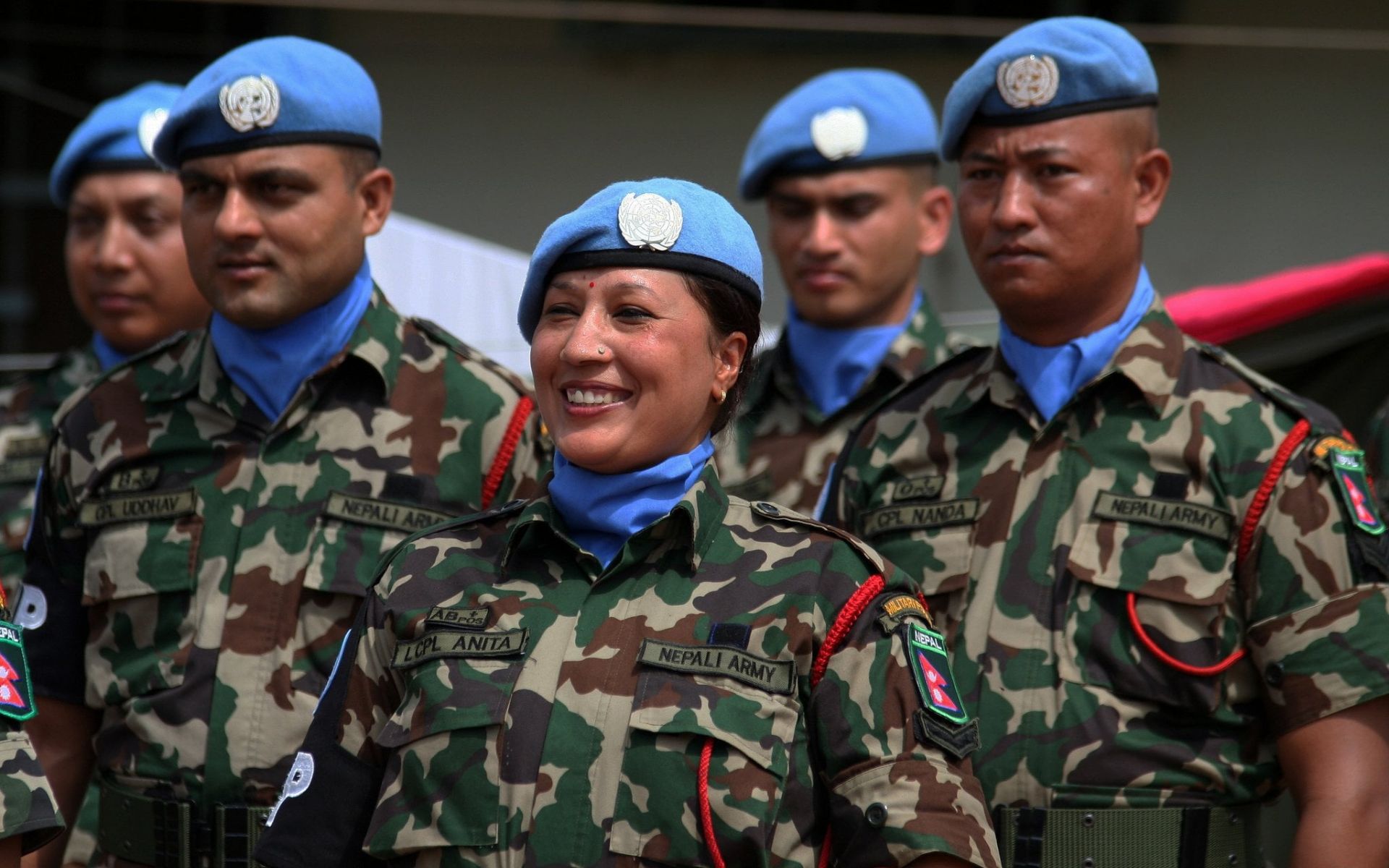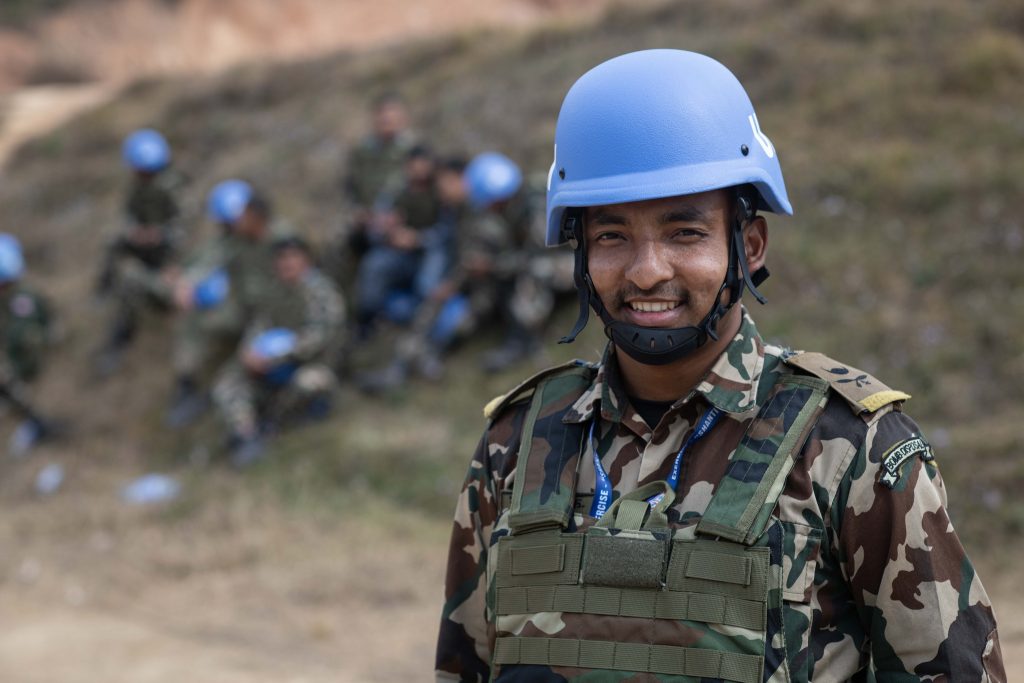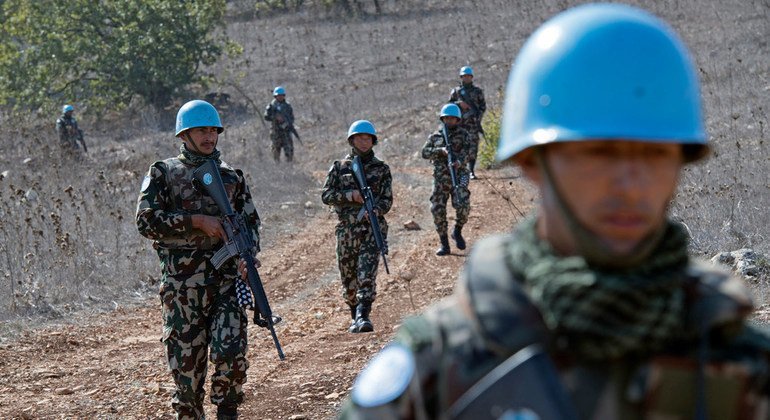

 21.14°C काठमाडौं
21.14°C काठमाडौं

Since Nepal’s entry into the United Nations in 1955, the Nepali Army (NA) has been a reliable partner in international peace and security. Its peacekeeping journey began in 1958, with five Nepali military observers sent to the United Nations Observer Group in Lebanon (UNOGIL), followed by the first Nepalese contingent deployed to the United Nations Emergency Force II (UNEF II) in Egypt in 1974.
Over more than 60 years of continuous service, the NA has earned a reputation for reliability, neutrality, and professionalism. More than 159,000 Nepali peacekeepers have served in 44 UN missions across four continents, often in dangerous conflict zones. Seventy-four soldiers have sacrificed their lives, and many more have been injured, reflecting Nepal’s deep commitment to peace.
As of August 2025, Nepal is the world’s largest troop-contributing country (TCC), with 5,819 personnel, including 561 women, deployed in 10 active UN missions. Nepal has offered up to 10,000 troops when needed, showing a strong commitment to the UN Charter and global security. For Nepal, peacekeeping is not just a military role but a core part of its foreign policy and international relations.
The NA’s contributions can be seen at the national, strategic, and operational levels, each highlighting Nepal’s broader impact on global peace and cooperation.
Nepal’s peacekeeping role since 1958 has raised its global profile. Despite limited economic and military strength, Nepal is now one of the top troop contributors. This long-term role has earned recognition and credibility beyond its size. In forums like the UN General Assembly, Nepal’s peacekeeping record grants it moral authority, overcoming the limits of small-state status. Nepal’s “niche diplomacy” transforms its peacekeeping efforts into significant influence in multilateral settings, often serving as a positive introduction and establishing it as a firm advocate for peace.
Peacekeeping has enhanced Nepal’s image as a peaceful, neutral, and non-expansionist state. This aligns with Joseph Nye’s concept of soft power, where influence comes from attraction and legitimacy rather than force. The sacrifices of Nepali peacekeepers build moral capital, generating goodwill from both major powers and smaller states. This legitimacy allows Nepal to be a credible voice for peace, justice, and fair global representation. Studies show that such moral authority helps small states exert greater impact in global negotiations.
Furthermore, Nepal’s active role in UN peacekeeping has advanced its foreign policy objectives by engaging in multilateral diplomacy and shaping international security debates. Regular troop contributions highlight Nepal’s reliability and alignment with the values and goals of the United Nations.

At the strategic level, Nepal projects its leadership and capabilities on the world stage through key appointments, policy engagement, and robust deployments. Nepali Army generals have earned global trust by holding major command and leadership roles within the UN system. Among the prominent leaders:
Peacekeeping also strengthens Nepal’s bilateral ties. Working alongside troops from the US, China, India, and Europe builds military cooperation, trust, and professionalism. This opens doors for wider defense and security ties, boosting Nepal’s relations beyond peacekeeping. This reflects the concept of secondary diplomacy, where small states use multilateral roles to gain goodwill from larger powers. For Nepal, peacekeeping is both a value-driven mission and a practical way to grow strategic partnerships.
The Birendra Peace Operations Training Centre (BPOTC) in Panchkhal serves as a regional training hub, hosting multinational Shanti Prayas exercises in 2000, 2013, 2017, and 2024, with participation from over 18 nations. The BPOTC offers advanced courses on UN military observers, staff officers, logistics, civil-military affairs, and contingent command, reinforcing Nepal’s role as a center for peacekeeping expertise.
The Nepali Army has deployed nearly 6,000 peacekeepers to regions across Africa, the Middle East, and the Caribbean, illustrating its substantial operational reach. Nepali troops are trusted protectors of civilians, especially vulnerable groups such as internally displaced persons, women, and children in conflict zones like South Sudan, the Democratic Republic of the Congo, and Darfur.
Nepali Army peacekeepers play crucial roles in monitoring ceasefires, enforcing peace in buffer zones, and conducting patrols and rapid responses in missions such as UNDOF, UNIFIL, and UNIKOM.
Their agility in humanitarian assistance and disaster relief (HADR) was clearly demonstrated during the 2010 Haiti earthquake, when the Nepali Army contingent carried out rescue operations, provided medical aid, and helped rebuild infrastructure.
Furthermore, Nepali Army peacekeepers have supported disarmament, demobilization, and reintegration (DDR) programs, contributing to the safe resettlement and stability of post-conflict societies in South Sudan and the DRC.

The Nepali Army’s enduring role in UN peacekeeping reflects Nepal’s unwavering dedication to peace, impartiality, and humanitarian values. By demonstrating achievements at the national, strategic, and operational levels, Nepal has elevated its global standing beyond its size. These efforts not only promote international security but also enhance Nepal’s credibility and influence in global diplomacy.